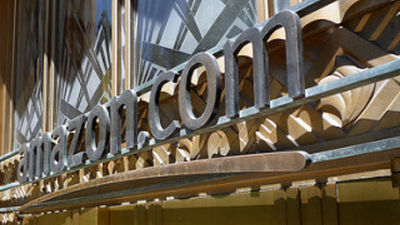Apple pays approximately 51 billion yen reparation, the Supreme Court dismisses the appeal due to price manipulation of electronic books

ByJ. Byerly
In a trial where Apple appealed the decision of the Court of Appeals, which had been accused of manipulating the price of e-books in collusion with the publisher, the US Supreme Court rejected Apple's appeal. As a result, Apple has decided to pay compensation of 450 million dollars (about 51 billion yen).
Apple Rejected by U.S. Supreme Court in $ 450 Million E-Book Case - Bloomberg Politics
http://www.bloomberg.com/politics/articles/2016-03-07/apple-rejected-by-u-s-high-court-in-450-million-e-book-case
Supreme Court rejects Apple e-books price-fixing appeal | Reuters
http://www.reuters.com/article/us-usa-court-ebooks-idUSKCN0W91LQ
The trial was based on a civil lawsuit issued by the US Department of Justice in 2012, as Apple and five major publications (Penguin, HarperCollins, Hachette, Simon & Schuster, Macmillan) signed an agreement to raise the price of electronic books In the first instance of the next 2013, a ruling was issued that "price control of Apple is a violation of antitrust law (antitrust law)". In the appeal court held at the end of June 2015, Apple was losing a decision to support the first instance and was appealing to the Supreme Court against Apple's dissatisfaction, but with this dismissal Apple The defeat of the side is finalized.
Apple loses in a trial where he challenged the Justice Department straight on e-book price operation - GIGAZINE

According to this decision, Apple will pay $ 400 million to e-book buyers (about 45 billion yen), $ 20 million to about 30 states that have filed lawsuits with the Department of Justice (about 2.3 billion yen), and plaintiffs' We will pay 30 million dollars (about 3.4 billion yen). Payment to buyers will be paid in the form of credits that can be used for future purchases.
In this series of price manipulation, aspects of the crisis of the existing publishing industry for e-books, which had been increasing momentum of dissemination, also exist. Some publishers feared that the revenues of traditional paper books will decline due to the growth of ebook readers and book data sales like Amazon's "Kindle", which is contrary to antitrust law Some companies also wanted to keep prices even by using means.
It was a series of lawsuits that gave a glimpse of the composition of "traditional book vs e-book", but Amazon, which was in the opposite position to Apple, opened stores that sell real books, and in the summer of 2016 It is getting to see a really interesting situation that there is also plans to open the second shop.
Amazon opened the second store of real bookstores in the summer of 2016 - GIGAZINE

Related Posts:
in Note, Web Service, Posted by darkhorse_log







